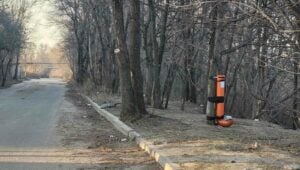Rebuilding Ukraine: FSC Ukraine round table yields green recovery principles
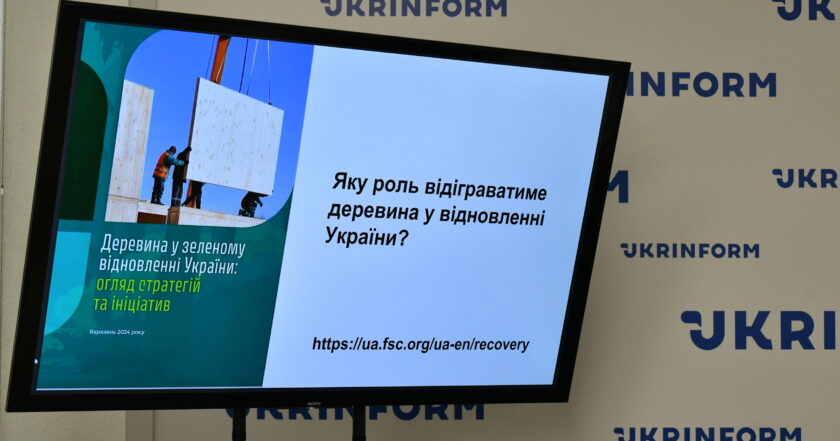
The Forest Stewardship Council® (FSC®) hosted a conversation about the role of wood in Ukraine's eco-friendly reconstruction. Attendees included government officials, state institutions, and non-governmental organizations.
Rubryka informs about this.
What is the problem?
Confronted with the disastrous consequences of the Russian invasion, Ukraine has intensified its efforts towards European integration. It has pledged to pursue a sustainable recovery, which includes reducing carbon emissions in the construction industry. Therefore, there is a pressing need to expedite transformative measures and devise methods to align state policies and domestic building codes.
What is the solution?
On July 23, 2024, FSC Ukraine held its inaugural roundtable discussion series titled "Wood in the Reconstruction and Development of Ukraine: State Policy, Regulation, and Green Recovery Goals." The event aimed to uncover wood's potential for promoting green reconstruction and development in Ukraine in the face of contemporary challenges.
Therefore, the discussion participants stressed the importance of establishing clear criteria for the sustainable recovery of the construction industry. This includes implementing the principles of the New European Bauhaus (NEB) to foster closer collaboration with European partners and attract long-term investments to Ukraine's economy. Other critical aspects highlighted were creating a system for evaluating the environmental impact of construction materials, advancing modular construction methods using wood, promoting certified materials, and incorporating ecological solutions into urban planning. It is crucial to overcome the misconception that wooden houses are weak or prone to fires and to promote the education and training of professionals in the realm of modern wooden construction.
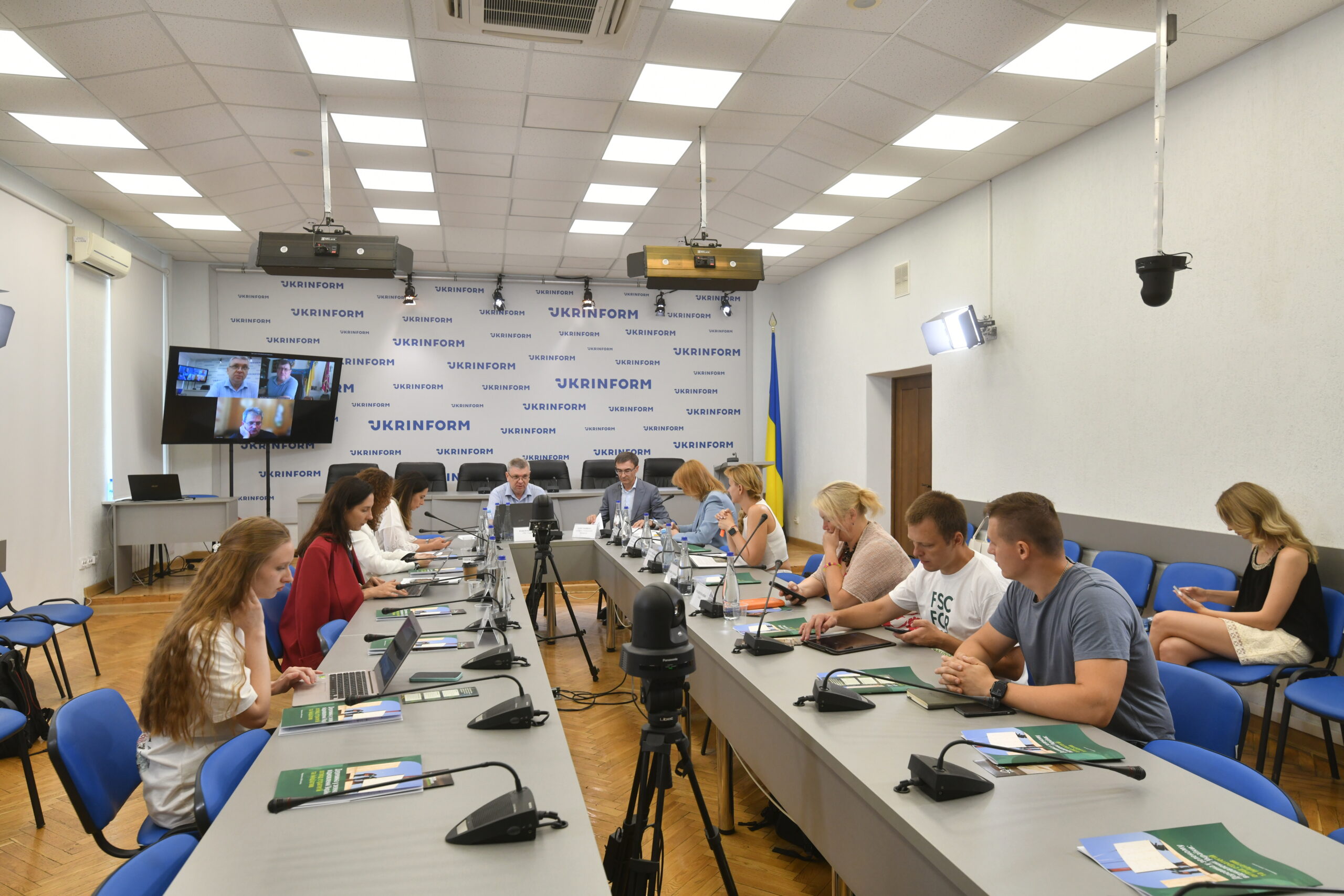
The participants of the round table were: Chairman of the Verkhovna Rada [Ukraine's parliament – ed.] Committee on State Power Organization, Local Self-Government, Regional Development, and Urban Planning Olena Shuliak, Deputy Chairman of the Verkhovna Rada on Economic Development Dmytro Kysylevsky, Deputy Chairman of the State Inspection of Architecture and Urban Planning of Ukraine Nataliia Diuzhylova, acting general director of the State Enterprise "Ukrainian research and training center for problems of standardization, certification, and quality" Nataliia Oliynyk, director of SE "Ukrainian Industry Expertise" Volodymyr Vlasiuk, director of Ukraine restoration projects WWF-Ukraine Valeriia Kolomiets, head of the department of National Technical University Orest Kiyko and other leading experts.
How does it work?
"Ukraine's domestic woodworking industry has the capacity to supply considerable building materials for restoration efforts. With the objectives outlined in the European Green Deal, including Ukraine's aim for decarbonizing the construction sector, wooden construction projects will garner interest for potential EU funding," the expert on Economic Recovery and Sustainable Development, Brian Milakowski, started the discussion. "However, there are obstacles on this path, in particular, legislative restrictions on the use of wood in high-rise buildings. In addition to changes in state policy, public agreement on the perception of wood as a green resource is important, so it is necessary to strengthen the dialogue between the forest industry and the public."
Head of the Committee of the Verkhovna Rada on the Organization of State Power, Local Self-Government, Regional Development and Urban Planning, Olena Shuliak emphasized:
"At the moment, there is a discussion about implementing a comprehensive legislative framework for the recovery of Ukraine. One of the key principles that will be included is the concept of green recovery and transformation. This will be enshrined in the current legislation. Data shows that approximately 35% of greenhouse gas emissions are attributed to the construction industry, specifically in producing concrete, metal, and plastic. This highlights the importance of considering wood as a viable alternative, which can help achieve the decarbonization goal in the construction sector."
Dmytro Kysylevsky, deputy chairman of the Verkhovna Rada Committee on Economic Development, noted that the recovery process presents a tremendous opportunity to expand the domestic market of building materials, particularly wood, for decades to come, which would have a positive effect on the country's economy.
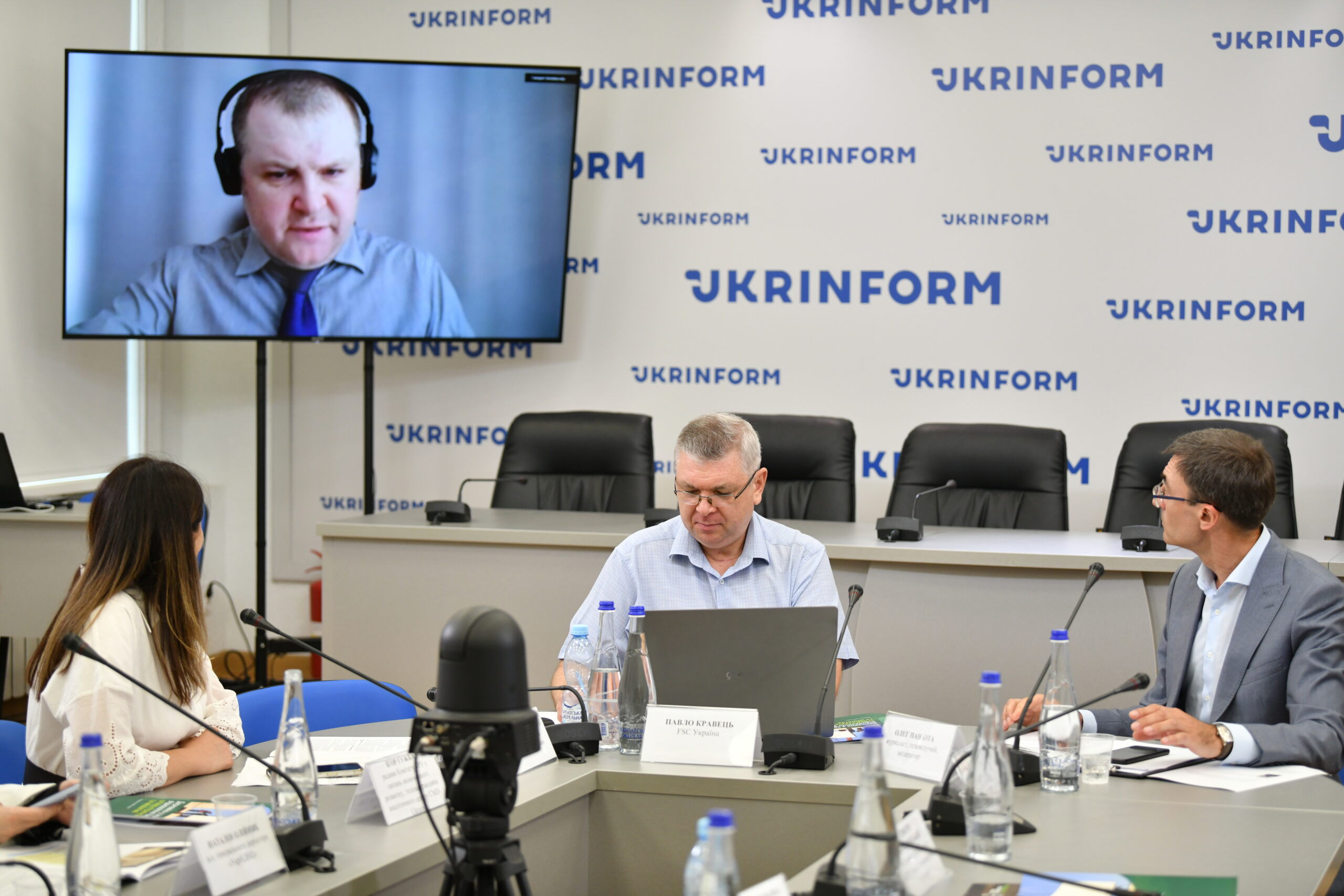
"The first step is to speed up the adaptation of the regulatory framework of European standards. However, there is a technical barrier—the lack of a laboratory base for issuing certificates of conformity of products to quality and safety standards and creating declarations under the new law," Nataliia Diuzhylova, deputy head of the State Inspection of Architecture and Urban Planning of Ukraine, says.
Diuzhylova also emphasized that building regulations are already being revised to consider environmental criteria. However, it is important to understand that European standards of green construction, such as LEED, BREEAM, Active House, and DGNB, were formed over decades. In Ukraine, the first edition of the green construction standard for public buildings has already been developed, which takes into account the possibilities of the domestic market and the provisions of European standards, in particular NEB.
"Thanks to the dialogue, we are finding points of contact between legislators, state structures, and civil society in matters of green reconstruction. There is already a solid foundation for using wood for these purposes because 45% of Ukraine's forests and more than 400 wood-processing enterprises have FSC certification, but the products are mostly exported. The introduction of green building criteria, including incentive tools and harmonization of standards, is expected to contribute to the development of the internal market, the transition to responsible consumption, and ultimately to European integration. The reconstruction and development of our country is inextricably linked with wood, given its ability to recover, carbon storage potential, suitability for secondary processing, low emission level, and versatility," Pavlo Kravets, director of FSC Ukraine, summed up the results of the event.
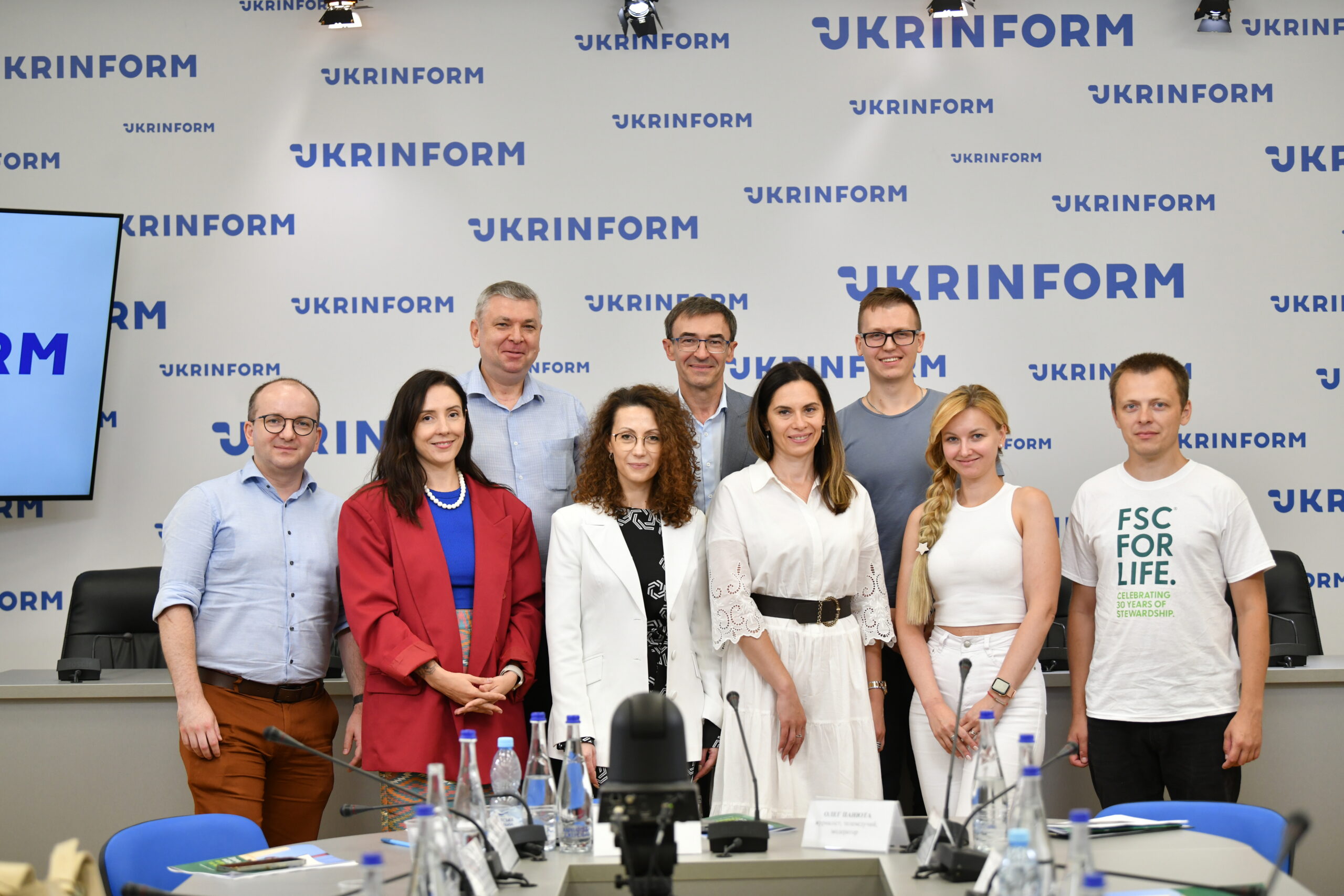
This event served as the groundwork for building essential partnerships and alliances to accomplish the objectives of Ukraine's green rebuild. By establishing a successful platform for dialogue, FSC Ukraine intends to carry on with a series of roundtable discussions, promoting ongoing conversation and strengthening collaboration among all involved parties.
For reference:
Forest Stewardship Council® (FSC®) is an international non-governmental organization whose activities aim to support ecologically and socially responsible forest management and ensure the sustainable use of forest resources. Voluntary FSC certification has covered 89 world countries on an area of more than 161 million hectares. As of July 2024, 4.73 million hectares of forests have been certified in Ukraine, and 99 forest management system certificates have been issued. 417 supply chain certificates cover the forestry business. FSC, in particular, contributes to the transformational processes of developing the green and circular economy in the framework of green reconstruction and is an official partner of the NEB.
Rubryka is an informational partner of the event.
It should be noted that green restoration is one of the points that Ukraine must fulfill in order to receive 50 billion euros from the European Union. Therefore, the use of wood materials in the reconstruction of our country will contribute to reducing greenhouse gas (CO2) emissions, which will be consistent with the terms of the Ukraine Facility program.






